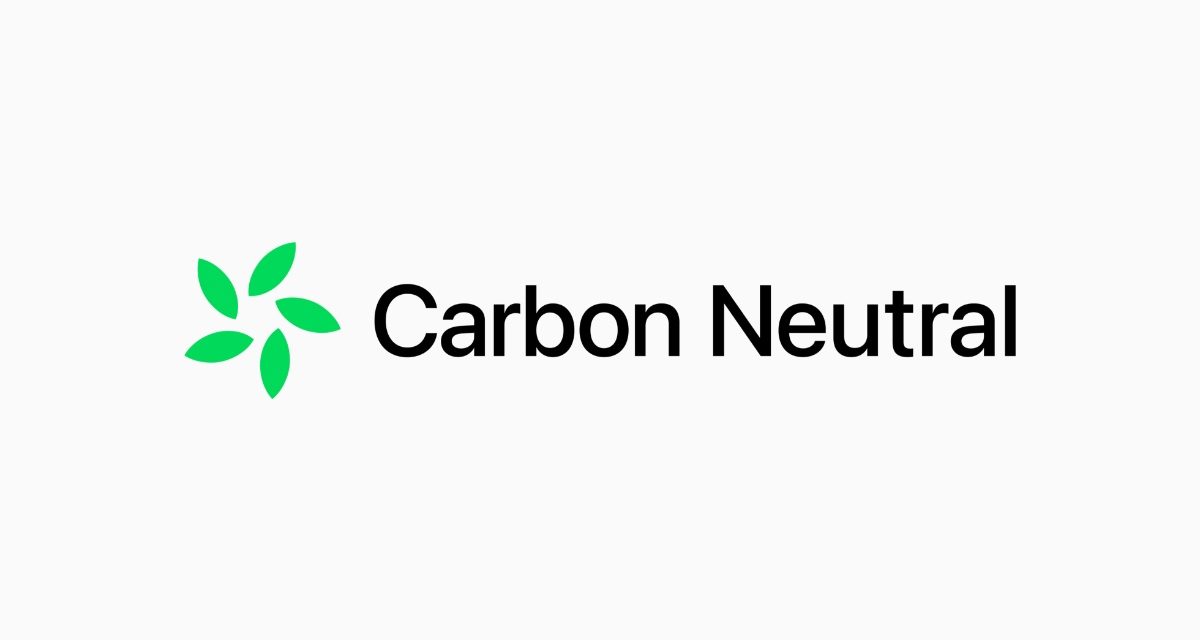The Financial Times reports that Apple’s use of the term “carbon neutral” has been rejected by the European consumer organization, BEUC. (A subscription is required to read the article).
The BEUC is the umbrella group for 45 independent consumer organisations from 31 countries. It’s main role is to “represent them to the European Union (EU) institutions and defend the interests of European consumers.” The acronym originates from the group’s French name, “Bureau Européen des Unions de Consommateurs.”
The EU has proposed that it will in the future be illegal to claim that a product is carbon neutral when that claim relies on offsetting credits to balance out the actual greenhouse gas emissions involved in production.
From the Financial Times report: The US tech giant’s decision to rely on credits to cancel out the 7-12kg of greenhouse gas emissions behind each new Watch prompted a sharp reaction from consumer groups in the wake of a long-trailed clampdown by the EU on “greenwashing”.
“Carbon neutral claims are scientifically inaccurate and mislead consumers,” Monique Goyens, the director-general of BEUC, the European consumer organisation, told the Financial Times. “The EU’s recent decision to ban carbon neutral claims will rightly clear the market of such bogus messages, and Apple Watches should be no exception.”
Along the same lines, an October 3 report from Inside Climate News notes that the Institute of Public and Environmental Affairs (IPE), says in a Sept. 22 report that the company may be “climate-washing,” or overstating its efforts to address climate change. From the report:
What is puzzling is that with the global smartphone shipments down 12%3 in 2022, Apple’s supply chain emissions data, which we have collected through various channels, shows that carbon emissions from some of its suppliers have only decreased slightly, and in some cases have even increased. We believe there is a need for full disclosure and explanation of how Apple achieves carbon neutrality of its products, given the increase in carbon emissions from some of its suppliers.
Disappointingly, precisely in 2023, Apple has stopped requiring suppliers to publicly disclose greenhouse gas emissions data for a technical reason, repeatedly and explicitly responding to environmental group that “we may not request suppliers to provide facility level carbon disclosure this year”.
Behind the seemingly contradictory performance, does Apple’s carbon neutrality ‘milestone’ reflect a genuine and substantial reduction in carbon emissions from the manufacturing process of various products, or is it more a case of cherry-picking limited green resources to achieve “numerical” carbon neutrality? The carbon footprint of the new flagship iPhone is higher than that of its predecessor – is it more carbon intensive in its design and manufacture, or has its allocation of clean electricity decreased?
How does Apple’s announcement that its products are carbon neutral, while the carbon emissions of some of its suppliers are increasing rather than decreasing, have any material significance in leading the way for large-scale reductions in this industry that expects its emission to keep increasing? With only seven years left till Apple to achieve its publicly stately commitment to become carbon neutral across its value chain, how does NOT requiring suppliers to disclose carbon emissions data prevent the risk of climate-washing?
In response to IPE’s report, Apple responded that the carbon neutrality of its Apple Watch line has been independently verified by SCS Global Services, a “leader in environmental standards and certification.”
“By far, the most impactful action a supplier can take to address climate change is to transition to renewable energy,” Apple said in a written statement, as noted by Inside Climate News. “That’s why we work closely with suppliers to help them procure more renewables and advocate together for reliable, cost-effective access to clean electricity in grids around the world.”
Article provided with permission from AppleWorld.Today




